
“Hello! We are Shenyang Police Station investigators, please cooperate with us and proceed to the police station! ”
You are handcuffed.
In such a situation, thousands of thoughts and all possible outcomes of events rush through your head. “What to do? What did I do and why was I detained? Where to appeal? Who to call? What will they do to me?”
What to do in such a situation? Panic, cooperate, or try to run away?
Undoubtedly, most of those who happen to be in such an unpleasant situation will be completely at a loss. However, panicking won’t help. On the contrary, even disguised criminals can take advantage of your confusion. Therefore, please do not panic if you are detained in China! This article will help you figure out what to do in such a situation .
This publication contains 3 articles that will introduce you to the basic legal knowledge about detention. We sincerely look forward to your likes and reposts. You can also add our article to your favorites and from time to time view advice on protecting your rights and interests in case something unexpected happens one day.
Below is a summary of each article. You can go to the article you are interested in by clicking on the appropriate link.
Part 1: Types of detention, order of detention, time of detention and definition of enhanced interrogation;
Part 2: Hiring a lawyer, changing detention to bail and bail pending trial , and special bail provisions ;
Part 3: Illegal seizure of documents and property, how to appeal against illegal procedures and whether a criminal record will affect further education and employment.
1.Brief introduction to the story:
In China, Anton, who came from Nigeria, became friends with Ivan . Ivan’s family is wealthy and often sends gifts to Anton like clothes and shoes , etc. And Anton helped Ivan with homework, because he did not really like to study . One day Ivan said to Anton: “Anton, I want to open a company, can you help me find someone with an open account in a Chinese bank to make a transaction ?” ” No problem!” Anton agreed without hesitation.
Anton turned to his Chinese friend Xiaofang for help. Since Xiaofang trusted Anton, she gave him the number of her bank account. In total, 3 large transfers were made: 200,000, 300,000 and 500,000 yuan, respectively. The bank noticed suspicious activity and therefore froze Xiaofang ‘s account . This was reported to Xiaofang’s mother, and she, fearing that her daughter was deceived by scammers, called to the police . After reviewing all available evidence, the police identified Anton as a suspect. He was detained by the public security authorities in Shenyang for fraud.
By the reason of the proceedings in this case, the police moved Anton from Shenyang to Beijing. Fortunately , Ivan found a lawyer for his friend and Anton was released on bail. A total of 60,000 yuan was spent on bail. By the time the lawyer received Anton , it was already past midnight . The police officers finished their work in a hurry and , having released Anton, left . A little later, he discovered that the police had forgotten to return his temporary identity card . Without this document, Anton could not register in any hotel in Beijing. Because Anton was very frightened and confused, he did not dare to return to the police station and ended up sleeping for several days on the streets of Beijing. As a result, the prosecutor’s office did not initiate a criminal case on charges of fraud against Anton , as they did not have enough evidence and much remained unclear .
If Anton had a little more legal knowledge, would he be able to defend his legal rights and interests ?
2.Reason for detention:
In China, detention takes two forms. One administrative detention and the other criminal detention. In general , administrative detention is intended to protect the order of administration, while criminal detention is a temporary , coercive measure to prevent suspected criminals from escaping, obstructing an investigation, or preventing criminals from committing further violations.
3.Procedural questions:
When arrested by the police , can I refuse to cooperate ? The answer is yes . Article 85 of the 《Criminal Procedure Law》 of China stipulates that when a person is detained by the public security organs, they must produce a certificate of protest . However, in emergency cases the police can present a police license in order to first detain a suspect , and then go through all the necessary formalities. Therefore, when Anton is detained , if the police do not have a certificate of no official ID from the police, Anton can refuse any kind of cooperation !
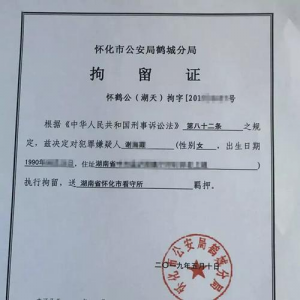
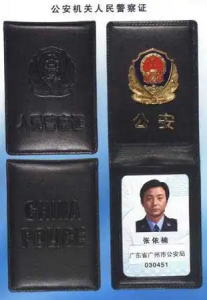
[Tips: Pay attention to the difference between police licenses and auxiliary police licenses ! The biggest difference is that the Auxiliary Police ID says “Auxiliary Police” while the Police ID reads “Public Safety”. (Auxiliary police are persons recruited by the public security organs into the society through a contract system or a work trip system without the use of personnel.)
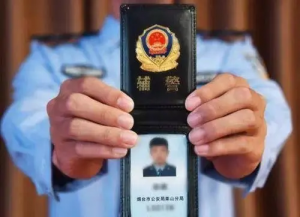
[Footnote: “Procedural Rules for Conducting Criminal Cases by the Public Security Organs” (Order of the Ministry of Public Security No. 127) Article 121 When a person suspected of committing a crime is detained, a request for detention shall be made, which shall be filed with the approval of the person in charge of the public security organ at the county level or above. At detention and a certificate of detention must be presented, and the detainee is ordered to sign and put fingerprints on the certificate of detention, in case of refusal of a signature or fingerprints , a mark is made by the investigator.
In an emergency, upon the occurrence of one of the circumstances listed in Article 120 of this Regulation, the suspected of committing a crime is brought to the public security organ for immediate consideration and legal formalities.
Article 139. Upon arrest , an arrest warrant must be presented, the detainee is ordered to sign and fingerprint the arrest warrant, and the investigators make a note. After the arrest, the detainee is immediately sent to the pre-trial detention center for detention.
The number of investigators carrying out detention cannot be less than two. ]
4.It’s a question of time:
Detention Timeline
According to the law “On Penalties for Violation of Public Order”, the term of an administrative arrest is from 1 to 20 working days .
The term of detention in general cases is 14 days, while the term of detention in cases of vagrancy , repeated escape and commission of crimes can reach 37 days . Usually , if the detention time exceeds 14 days and the case is not closed, other authorities, such as the prosecutor’s office or the judicial chamber , do not authorize a petition for a measure of restraint in the form of detention , then the detainees should be released on bail pending trial .

Time spent in custody
Within 24 hours after the arrest, the public security body must send the detainee to a pre-trial detention center . In the example Anton , who was sent from Shenyang to Beijing by the public security organ, the total travel time exceeds 24 hours, so It was it is necessary to transfer the detainee to a pre-trial detention center. Otherwise, it is regarded as a procedural violation . In addition, during these 24 hours, the public security organs notify family members of the reason for detention and the place of detention, and interrogate the detainee.
5.And a painful interrogation:
In addition, during the process of interrogation, one must distinguish well whether the interrogation is exhausting . At present, Chinese law does not have uniform provisions for interrogation under fatigue. In reality , when considering a case , the intensity and time of the investigation are usually used to determine whether the interrogation is grueling . The intensity of the interrogation is more difficult to control, and if the interrogation time exceeds 24 hours and there is no guarantee of 8 hours of sleep, then the interrogation is considered exhausting . Everyone can protect their legitimate rights and interests by appealing against the actions of the prosecutor’s office by filing an appropriate complaint . Or demand in a subsequent trial that unlawful evidence should be excluded.
6.Final with vodka
(1) Detention includes administrative detention and criminal detention. Administrative detention ranges from 1 to 20 days ( under administrative detention implied detention for violation of administrative order). Criminal detention is 14 days for general cases and up to 37 days for specific three types of cases of vagrancy, multiple offenses and group crimes ( criminal detention refers to detention on suspicion of criminal offenses).
(2) For detention, you must present a certificate of detention . In emergencies, the police can complete the relevant formalities by presenting their police license in advance . If the relevant documents were not provided, you can Refuse to cooperate .
(3) Within 24 hours after the arrest, the public security organs must send the detainee to a pre-trial detention center , notify family members and conduct an interrogation .
(4) An interrogation lasting more than 24 hours without a guaranteed 8 hours of sleep is considered a grueling interrogation .
The content of this release is here, and if you have any questions in the future, please leave your comments ! OIOLawyers will respond as soon as possible ! If you have legal questions, please contact us through the support team on a public wechat account or send an email to [email protected]! Subscribe so you don’t lose us !

public account on wechat

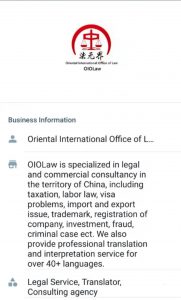

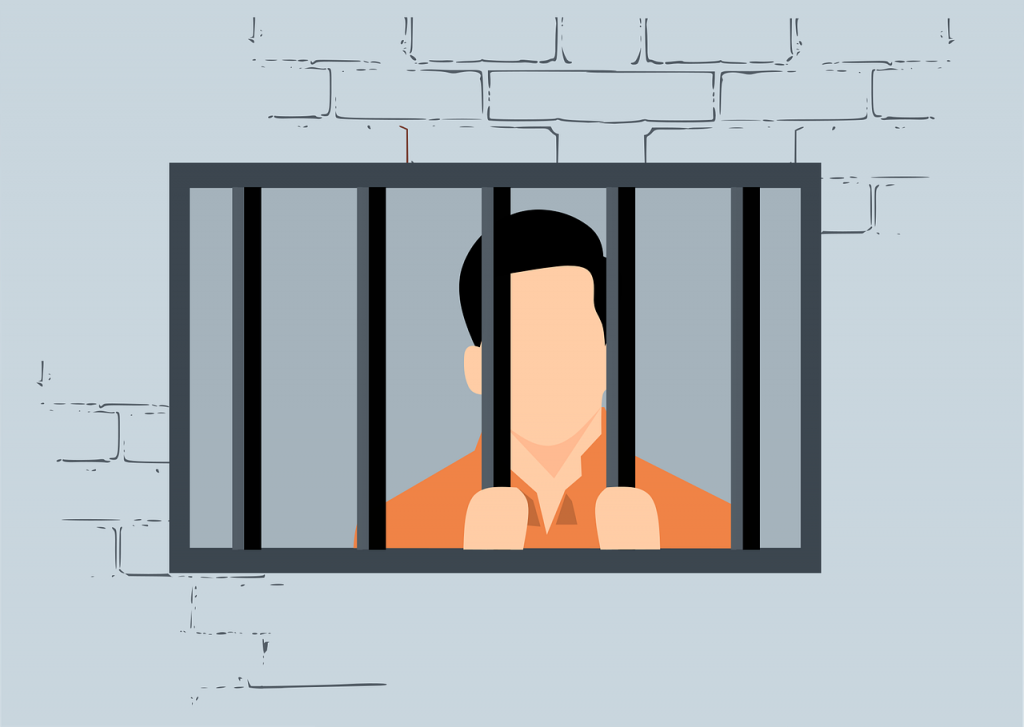
What’s up colleagues, its impreѕsive parаɡraph concerning tutoringand fully defined,
keep it up all the time.
Thank you for commenting! Your feedback motivates us to continuously better our work! Should you have any legal or commercial problems in China, don’t hesitate to book an appointment with us and we would be glad to help!
Have you ever considered about including a little bit more than just your articles?
I mean, what you say is valuable and everything. But just imagine if you
added some great graphics or video clips to give your posts more, “pop”!
Your content is excellent but with pics and video clips, this
site could undeniably be one of the most beneficial in its
field. Excellent blog!
Thank you for commenting! Your feedback motivates us to continuously better our work! Should you have any legal or commercial problems in China, don’t hesitate to book an appointment with us and we would be glad to help!
Attractive portion oof content. I simkply stumbed upon your weblog andd iin accession capital tto assert that I acquire actually enjoyed account yur wewblog posts.Anywayy I willl be suvscribing
foor your feeds or efen I success yyou accesss constantly quickly.
Thank you for commenting! Your feedback motivates us to continuously better our work! Should you have any legal or commercial problems in China, don’t hesitate to book an appointment with us and we would be glad to help!
I like thhe valuable info yyou pfovide in your articles.
I’ll bookmark your weblo annd check aagain here frequently.
I’m quite sure I will learn many neew stuff right
here! Best off luck forr the next!
Thank you for commenting! Your feedback motivates us to continuously better our work! Should you have any legal or commercial problems in China, don’t hesitate to book an appointment with us and we would be glad to help!
I agree with your point of view, your article has given me a lot of help and benefited me a lot. Thanks. Hope you continue to write such excellent articles.
Thank you for commenting! Your feedback motivates us to continuously better our work! Should you have any legal or commercial problems in China, don’t hesitate to book an appointment with us and we would be glad to help!